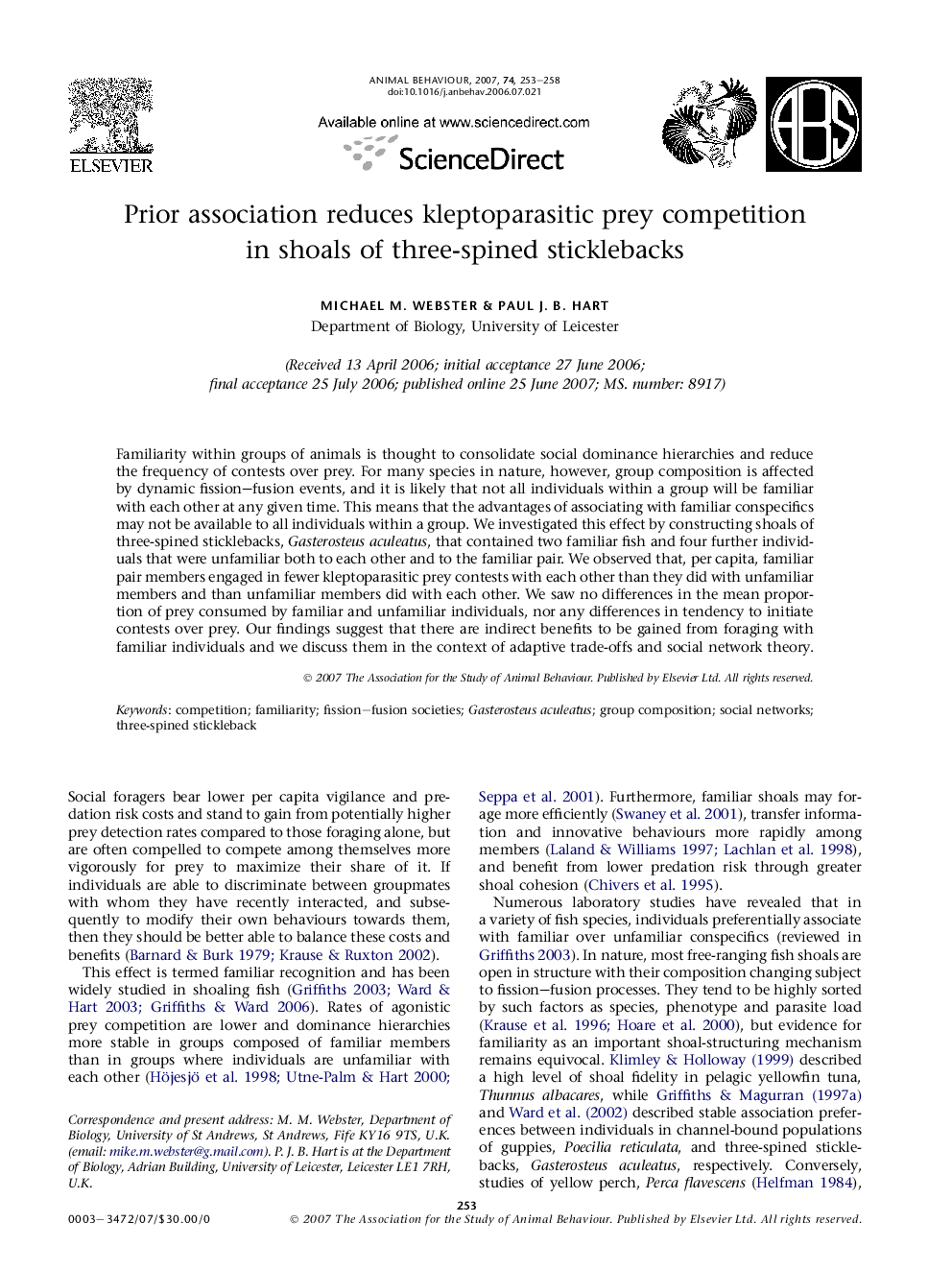| Article ID | Journal | Published Year | Pages | File Type |
|---|---|---|---|---|
| 2417943 | Animal Behaviour | 2007 | 6 Pages |
Familiarity within groups of animals is thought to consolidate social dominance hierarchies and reduce the frequency of contests over prey. For many species in nature, however, group composition is affected by dynamic fission–fusion events, and it is likely that not all individuals within a group will be familiar with each other at any given time. This means that the advantages of associating with familiar conspecifics may not be available to all individuals within a group. We investigated this effect by constructing shoals of three-spined sticklebacks, Gasterosteus aculeatus, that contained two familiar fish and four further individuals that were unfamiliar both to each other and to the familiar pair. We observed that, per capita, familiar pair members engaged in fewer kleptoparasitic prey contests with each other than they did with unfamiliar members and than unfamiliar members did with each other. We saw no differences in the mean proportion of prey consumed by familiar and unfamiliar individuals, nor any differences in tendency to initiate contests over prey. Our findings suggest that there are indirect benefits to be gained from foraging with familiar individuals and we discuss them in the context of adaptive trade-offs and social network theory.
